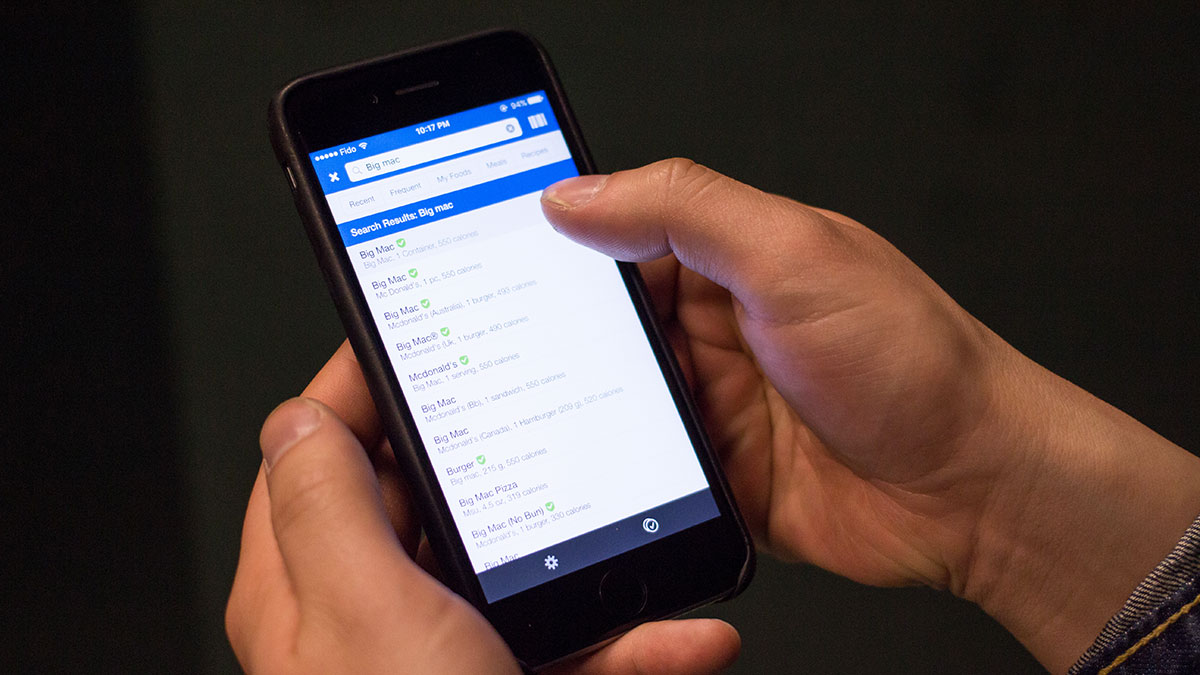MyFitnessPal focuses too much on weight loss to be truly effective
 Christina Varvis
Christina VarvisA couple months ago, my friend, while logging her dinner into MyFitnessPal, asked me why milk is “so bad for you.” She was upset that her cup of one per cent milk had over 100 calories, putting her over her daily calorie goal. I gave her a dirty look and started a passionate monologue about just how fabulous milk is, but her eyes just about rolled out of her head before she said “K whatever, tomorrow I just won’t have milk so that I’ll have enough calories left over to have some nachos.”
MyFitnessPal is a calorie counting app that’s marketed as a weight loss tool. After punching in your height, weight, age, activity level, and weight loss goals, it shoots out your calorie goal. Food journaling is known to be an effective strategy for weight loss, holding the individual accountable for their food choices (I really like to think that if I don’t write down that I had Mini Eggs for breakfast, it doesn’t actually count).
In most cases, weight loss should really be seen as an outcome of healthy lifestyle behaviours, and not as its own goal. MyFitnessPal abuses the effectiveness of food journaling by focusing too much on weight loss, as opposed to healthy lifestyle.
Losing weight is, in theory, very simple, and probably super boring if you don’t love biochemistry. Burning more calories than you eat puts your body in negative energy balance, forcing you to metabolize your stored energy in tissues. If you’re burning your body’s stores, you’ll lose weight. In real life, however, metabolism is much more complicated. The more weight you lose, the fewer calories you burn at rest. If you’re below your calorie goal one day on MyFitnessPal, it gives you an estimation of how much you’ll weigh in five weeks if “everyday was like today,” based off energy balance calculations.
The app completely disregards the other aspects of weight homeostasis, like vitamin and mineral intake, oversimplifying weight loss and underestimating the importance of an overall healthy diet.
Improving health is so much more than just losing weight. If my friend had consumed 100 calories worth of nachos instead of that cup of milk, her body’s energy balance would stay the same, but her metabolic processes would be much different. In the way the app portrays health, you could eat solely small amounts nachos everyday while staying below your calorie goal and be perfectly healthy. Nachos might have their small place in a varied, balanced diet, but milk is ultimately healthier in the long run.
Long-term weight loss goals need to be met through lifestyle changes. There’s literally thousands of fad diets, super foods and supplements “proven” to help you lose weight FAST! All the while, obesity rates are at an all time high. This junk sells because drinking a Gwyneth Paltrow Moon Juice Sex Dust smoothie every day sounds a hell of a lot more fun than eating a balanced diet and exercising regularly. Long-term weight loss is difficult, and almost impossible to attained through quick fixes.
MyFitnessPal has potential as an effective weight loss tool if the user understands that being healthy is more than calories in, calories out. We need to focus more on healthy lifestyle behaviours with weight loss aimed as an outcome, not quick fixes that focus on weight loss as the only goal. Changing weight status is a complicated process, and it needs to be addressed as such. So please, drink your milk, stop eating nachos every day, and maybe just totally avoid Moon Juice Sex Dust.





Yeah, just gonna chime in here with the other commentators. If you log in on computer, and click ‘goals’, you can set all the micro and macronutrient goals you want…
You are complaining that the ‘guided setup’ for goals focuses on weight loss, which is true. However, if you set up your own goals, you can override these and set up whatever goals you want.
For me, MyFitnessPal is firstly about making me aware of what and how much I eat, and at that it does a pretty good job in my opinion.
Agree with the comment, the app is what you make of it – it can be used to track a variety of things, and you can customise it in a number of ways (even more if you pay). That said, for the ‘first timer’ who hears about the app, it does throw you down the path of ‘ooh, in 5 weeks you can weigh x’ – unless you delve into the community side of things, or you’re already set on using the app in a certain way, it can throw you down the route discussed. To say ‘she’s not using it properly’ is fine, but there’s a lot of people who aren’t. Maybe add a bit of balance into the post and help to educate people about how to use it correctly…
Not true. My Fitness Pal helps you acheive goals that YOU set. Mine are centered around Macros, not calories. I need to make sure I get enough protein. It is only a tool. How you use it is up to you.
I’m sorry but I couldn’t disagree more. Did you even do a user test before writing this article or is it what it appears as lazy journalism based on your friends experience?
The apps usage stems well beyond calorie intake levels as you suggest. I’ve monitored my macro nutrients using the app for over a year, it can be a great aid for anyone who has to watch any nutrient levels for medical purposes, sugar for diabetics, iron levels for those at risk during pregnancy.
There is a whole community there that would wholeheartedly disagree with your article, just because your one friend would rather use 100 kcal for nachos and not a glass of milk doesn’t mean the app is ineffective, it means she is not using it properly.